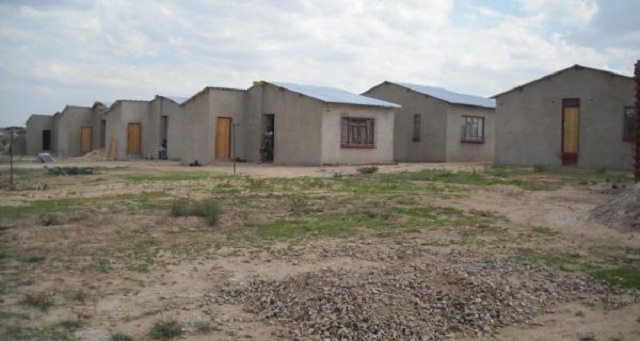
The Sunday News

Roberta Katunga, Senior Business Reporter
THE move by the Government to ban the allocation of State land to housing co-operatives has been welcomed by some quarters while other stakeholders feel it was a bold move which will bring sanity in the delivery of housing.
The Ministry of Local Government, Public Works and National Housing announced that servicing and housing development on State land will be done by the Urban Development Corporation, a parastatal under the ministry, following cases in which people have lost money to bogus land developers while many deals have gone sour after it turned out that they were illegal.
In an interview, Zimbabwe National Association of Housing Cooperatives (Zinahco) president Mr Mike Duru said he believed the intervention was a temporary measure and urged the Government not to impose a blanket ban on all co-operatives but instead zero in on the land barons.
“We are totally behind the suspension of troublesome co-operatives as they bring a bad name to the whole association as there are instances where housing co-operatives are doing well. We would like to urge the Government to allow those doing well and contributing to Zim Asset to continue,” said Mr Duru.
He said it was imperative for the responsible ministry to share the findings of the investigation on fraudulent activities in Harare instead of sacrificing the whole sector.
He said it was only in Harare where there are land barons as a research carried out by Zinahco showed that cities like Bulawayo were not facing similar problems.
“Those found guilty should be brought to book to restore sanity in the sector,” he said.
Mr Duru said the association was going to enforce compliance of the Housing Society’s Act (Chapter 24.05 Sect 34- 36) to avoid cases of embezzlement and fraud within the sector.
According to the Act, cooperatives are supposed to submit monthly reports to the Ministry of Local Government, Public Works and National Housing as well as financial statements monthly.
The law also requires an audit of all co-operatives’ accounts.
“We are also urging members to hire qualified human resource persons especially in the finance departments. Our ministry also gave us the mandate in 2014 to recommend the deregistration of co-operatives that do not comply with the act or those that disregard the dictates of the law,” Mr Duru said adding that it was evident that the misuse of people’s funds had gone on for too long and had to be stopped.
In an interview, Estate Agents Council chairman Mr Oswald Nyakunika said banning of housing co-operatives alone was not enough and called for an Act of Parliament to regulate the activities of co-operatives.
He said banning was supposed to be countered with alternative legal and registered organisations.
“Some of the so called developers are no different from co-operatives and we have always argued that an Act of Parliament is needed to regulate their activities and leave the selling bit to registered estate agents,” said Mr Nyakunika.
Speaking on the problems associated with housing co-operatives, Mr Nyakunika said there was abuse of funds and selling of land at illegal locations.
“I doubt if they operate trust accounts like estate agents. People must have faith that their money is safe and it will not be abused,” he said adding that it was important to ensure developments are approved and taking place in approved locations.
He said lack of capital to service land and build was the main constraint in the property sector.
Despite the shortages, Mr Nyakunika said more private public sector participation was being realised in the sector.
“Of late private sector and municipalities have joined forces in servicing land for housing. Zimre and Old Mutual have participated in such ventures,” he said.
He said it was, however, difficult to quantify the housing backlog although he confirmed that demand outstrips supply and that this situation will remain unless more resources are committed to housing development.
Bulawayo City Council senior public relations officer Mrs Nesisa Mpofu said the local authority allocates stands to individual members of co-operatives groups who comply with municipal policy.
“They should be registered under our Housing Waiting Register and comply with the requirements of the Housing Scheme. The applicant should not be the owner of another residential property in the high density area,” she said.
Responding to questions on how co-operatives apply for land, Mrs Mpofu said council advertises various housing development schemes from time to time and indicates relevant conditions applicable to each scheme.
She said members of the public including individual members of cooperatives could apply to participate in the scheme.
“During the allocation process those that meet the set requirements are allocated stands be they co-operative members or not. We do not have virgin land allocated to co-operatives requiring that they service it on their own.
Members are allocated stands within a defined scheme where council is generally responsible for servicing,” Mrs Mpofu said.
Bulawayo has about 12 active housing co-operatives although a total of 23 are registered.
Zim Asset prioritises housing through the social services and poverty eradication cluster as well as the infrastructure and utilities cluster whose thrust is to ensure that there is decent shelter for Zimbabweans.
Housing development is a key result area of Zim Asset, envisaging the construction of 125 000 housing units with an annual target of 25 000.
Zimbabweans need houses given the increment in the population as shown by the last national census which showed a population of 12 973 808 in August 2012, which is a reflection of an average annual intercensal population growth of 1,1 percent.
It is postulated that the population will double in the coming 70 years and with the growth in population, so will be the housing needs of the populace.



